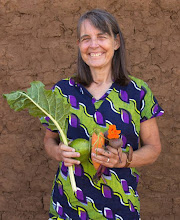A few photos. . .
Yesterday was an 18 hour day and today was too. Every day from here on out we’ll be busy. Glad I had that swim yesterday AM. We started the surveys today and there has been so much preparation. Now I’ll be doing lab work.
We have been collecting blood samples in the community at a school today. Very full on. We are having to enter the data into these Personal digital Assistants (PDA ) for the Gates survey and it is quite laborious, especially since the names are all like Funagaliliou Papakavatu or along those lines. Then at night we are doing lab work. We could use at least 10 other people.
It's nice for me to be just helping out and not worrying about getting data for my PhD. There are mozzies, which seem to be mostly of the aedes genus, I’m not sure which species. There is not a lot of wildlife. I’ve seen a rat, a few geckos, no birds, a few cats. Pigs are penned up. There are lots of dogs running around and most of the females seem to be in heat.
Our team, striding purposefully off to work. . .
left to right: Kim, Sandra, Hayley, Rick, Sonia and Petrina
























